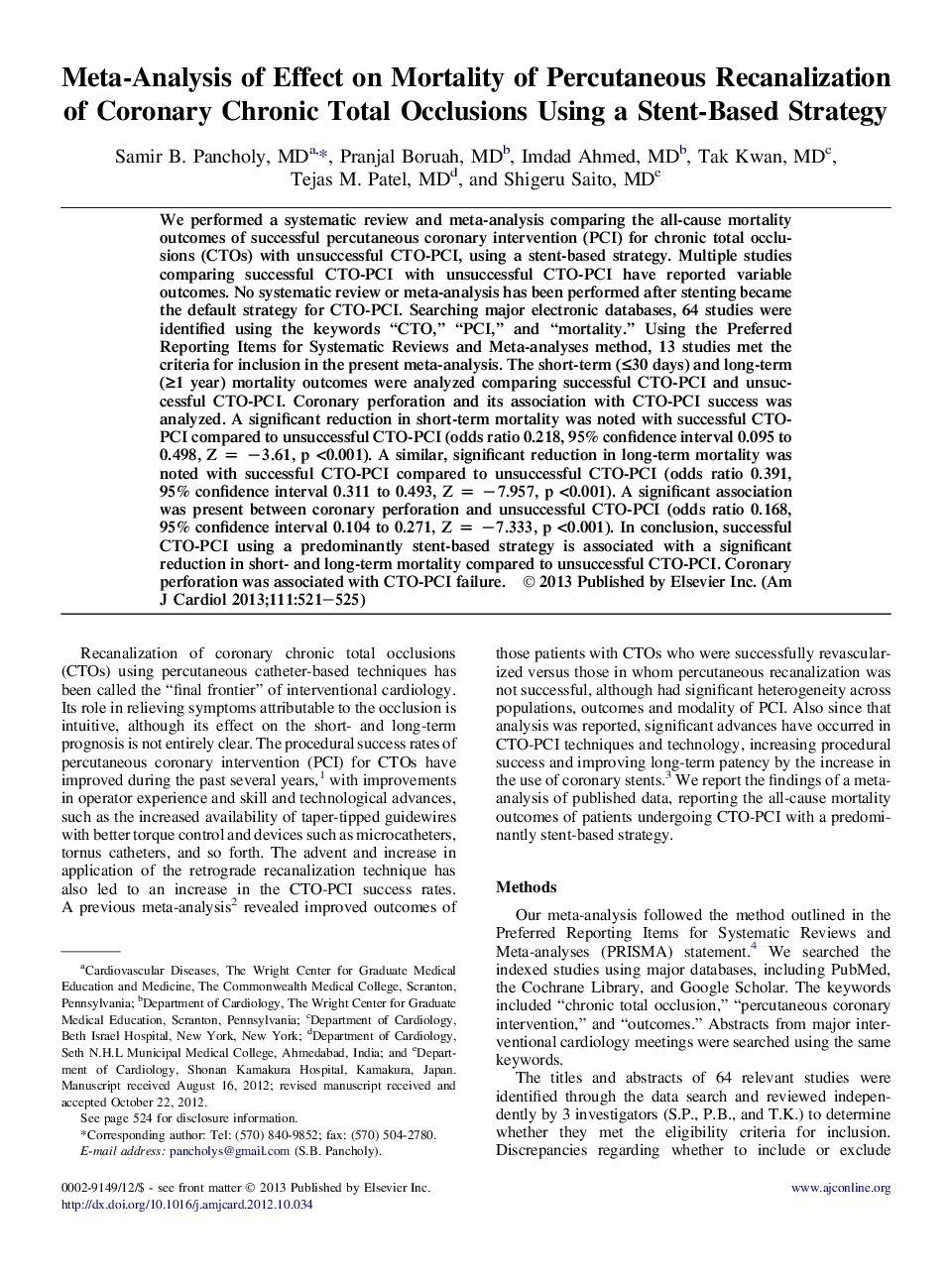| کد مقاله | کد نشریه | سال انتشار | مقاله انگلیسی | نسخه تمام متن |
|---|---|---|---|---|
| 5931181 | 1572200 | 2013 | 5 صفحه PDF | دانلود رایگان |
We performed a systematic review and meta-analysis comparing the all-cause mortality outcomes of successful percutaneous coronary intervention (PCI) for chronic total occlusions (CTOs) with unsuccessful CTO-PCI, using a stent-based strategy. Multiple studies comparing successful CTO-PCI with unsuccessful CTO-PCI have reported variable outcomes. No systematic review or meta-analysis has been performed after stenting became the default strategy for CTO-PCI. Searching major electronic databases, 64 studies were identified using the keywords “CTO,” “PCI,” and “mortality.” Using the Preferred Reporting Items for Systematic Reviews and Meta-analyses method, 13 studies met the criteria for inclusion in the present meta-analysis. The short-term (â¤30 days) and long-term (â¥1 year) mortality outcomes were analyzed comparing successful CTO-PCI and unsuccessful CTO-PCI. Coronary perforation and its association with CTO-PCI success was analyzed. A significant reduction in short-term mortality was noted with successful CTO-PCI compared to unsuccessful CTO-PCI (odds ratio 0.218, 95% confidence interval 0.095 to 0.498, Z = â3.61, p <0.001). A similar, significant reduction in long-term mortality was noted with successful CTO-PCI compared to unsuccessful CTO-PCI (odds ratio 0.391, 95% confidence interval 0.311 to 0.493, Z = â7.957, p <0.001). A significant association was present between coronary perforation and unsuccessful CTO-PCI (odds ratio 0.168, 95% confidence interval 0.104 to 0.271, Z = â7.333, p <0.001). In conclusion, successful CTO-PCI using a predominantly stent-based strategy is associated with a significant reduction in short- and long-term mortality compared to unsuccessful CTO-PCI. Coronary perforation was associated with CTO-PCI failure.
Journal: The American Journal of Cardiology - Volume 111, Issue 4, 15 February 2013, Pages 521-525
